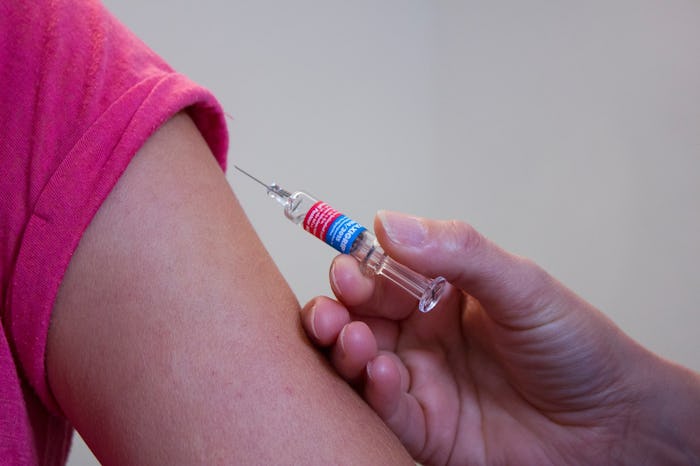In 1998, the medical journal The Lancet published a study by British doctor Andrew Wakefield. This study, which has since been dubbed an "elaborate fraud," linked vaccinations to increased risk of autism. Even after this study was discredited, and several other follow up studies showed no link between autism and vaccines, many parents still choose to hold off or opt out of vaccinating their children. You may be concerned about the risks of vaccinations, but you should also be asking, what are the dangers of not vaccinating?
The dangers are great. So great in fact that in 2015 California lawmakers passed Senate Bill 277 which mandates that all children attending school or daycare be vaccinated. This bill eliminates the personal-belief and religious exemptions, allowing exemption only for medical reasons. According to the National Conference of State Legislatures, Mississippi and West Virginia also do not allow vaccine exemptions. Valley News reports that a new Colorado law, which takes effect in July, will no longer allow parents to apply for a overall childhood vaccine exemption, rather, it will require parents to apply for an exemption every time their children are due for a vaccine.
Before you make your child's vaccination decision based on faulty information, talk to your child's pediatrician and learn more about some of the risks (like the ones below) associated with not vaccinating.
1Children Are Exposed To A Preventable Illness
An unvaccinated child is at risk daily of being exposed to a serious but preventable illness. According to the CDC, there are illnesses that can be spread from people who carry the disease in their body but are not ill. You can’t tell who is contagious, and have no idea who may make your child ill. The New York Department of Health warns that, as the US is becoming an increasingly global society, travelers from other countries can carry illnesses into this country that can expose unvaccinated individuals to preventable illnesses.
2Children Are Become Infected With A Preventable Illness
The New York Times reported that, in 2015, an outbreak of measles that started in Disneyland resulted in more than 125 measles cases, the majority of which occurred in unvaccinated individuals. This is a disease that was declared eliminated in the year 2000, proving the power vaccination has on keeping diseases at bay.
3Children Are Could Be Misdiagnosed
Doctors are less likely to initially associate symptoms with a vaccine-preventable illness. According to the Chicago Tribune, in 2012, doctors were misdiagnosing whooping cough as asthma or bronchitis, and a measles case from an unvaccinated person returning from Indonesia was diagnosed as dengue fever. Doctors who'd never seen these cases up close in the US were looking for more likely causes, while hundreds of people were exposed.
4Children Are, If High Risk, Could Become Seriously Ill
The CDC also warns that infants who are too young to be fully vaccinated and those with weaker immune systems, such as someone with cancer or a transplant recipient, can be at risk for serious illness or death if exposed to a vaccine preventable illness. People with medical conditions that prevent them from receiving vaccines rely on the general public being vaccinated to reduce their risk of exposure.
5Unvaccinated Pregnant Women Can Pass Viruses To Their Unborn Babies
Women who were not vaccinated as children can put their unborn babies at risk for diseases. Rubella, for example, if passed from an unvaccinated pregnant mother to her fetus, can cause miscarriage, death shortly after birth, heart problems, loss of hearing and eyesight, intellectual disability, and liver or spleen damage warns the CDC.
6Children Could Be Put In Quarantine
In the case of an outbreak, unimmunized children may be mandated into quarantine, even they aren't showing signs of the illness, according to Why I Choose. Families may be required to stay in isolation until they can be given medical or public health clearance, which can cause loss of pay and falling behind at school.
